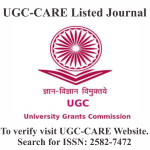CONSTITUTIONAL VALIDITY OF CAPITAL PUNISHMENT IN INDIA: AN ANALYSIS
DOI:
https://doi.org/10.29121/shodhkosh.v5.i1.2024.5026Keywords:
Capital Punishment, Constitutional Validity, Clemency Power and Fundamental RightsAbstract [English]
Capital punishment is very important issue in the present situation as it is often challenges as the violation of human rights. But in India capital punishment is not rule but act as exception on the touchstone of rarest of rare case and it is applicable in such situations only. With the rising rate of crime, it is very much necessary to retain the capital punishment in the criminal law to instill deterrence in the mind of people from committing the same. India usually follows the deterrent and reformative theory of punishment as per the case suited. There are so many landmark judgments whereby judiciary recognized the applicability of capital punishment in “rarest of rare” case only. The paper deals with the historical background of capital punishment highlighting its significance from the historical times. It focuses on theories of punishment which play an important role for punishing the offender keeping in mind the purpose behind it. It also covers the various judicial pronouncement starting from Jagmohan Singh to Machhi Singh which decided the constitutional validity of capital punishment in India which held that it is awarded in “rarest of rare” cases only. It further deals with legal framework of both national as well as international whereby capital punishment has been made applicable for some specified offences. It also emphasizes on law commission report like its 35th and 262nd reports which specifically mentions about different aspect of capital punishment. It also covers the judicial review and clemency power of President and Governor as a means of last resort to the offences punishable by capital punishment.
Downloads
Published
How to Cite
Issue
Section
License
Copyright (c) 2024 Shruti

This work is licensed under a Creative Commons Attribution 4.0 International License.
With the licence CC-BY, authors retain the copyright, allowing anyone to download, reuse, re-print, modify, distribute, and/or copy their contribution. The work must be properly attributed to its author.
It is not necessary to ask for further permission from the author or journal board.
This journal provides immediate open access to its content on the principle that making research freely available to the public supports a greater global exchange of knowledge.




















